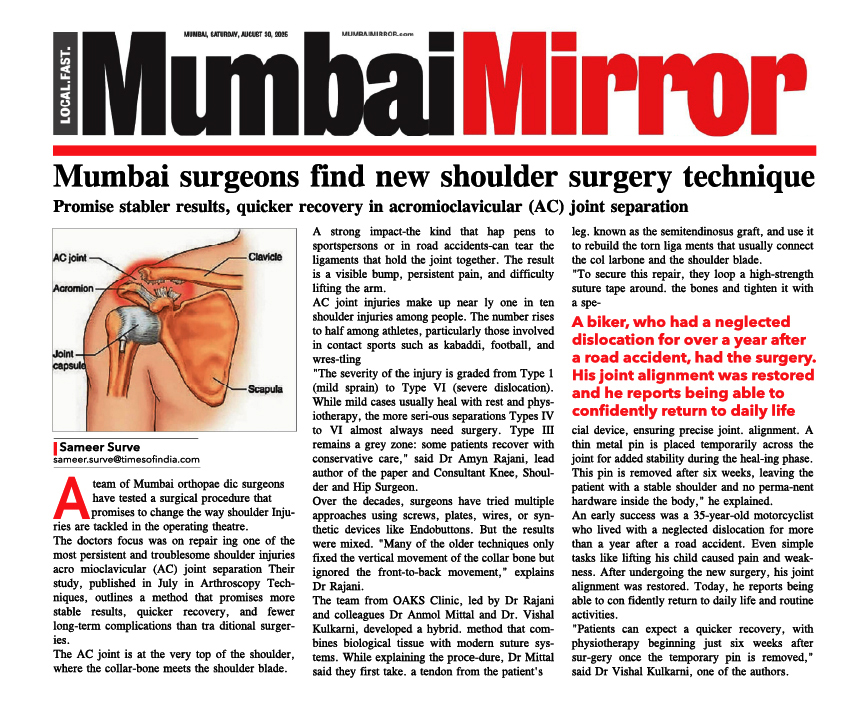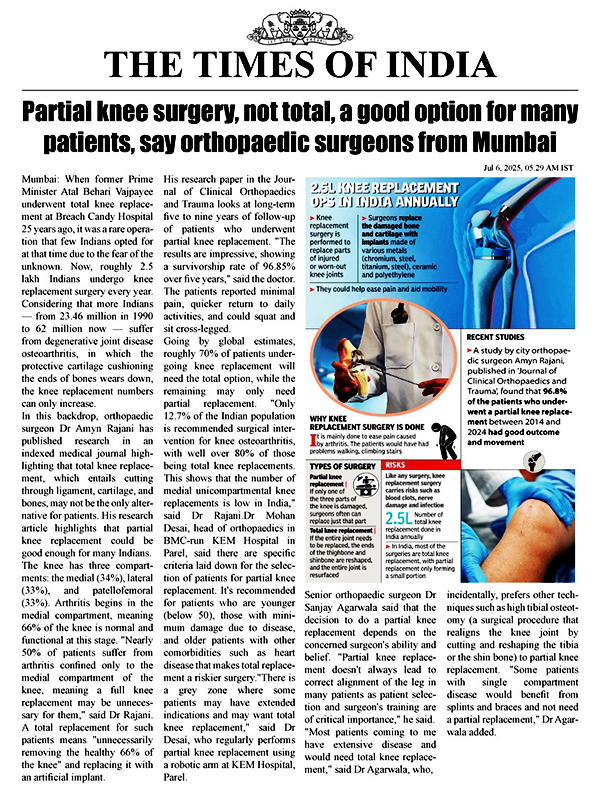What Is Unicondylar Knee Joint Replacement Surgery?
Unicondylar knee joint replacement surgery or partial knee joint replacement surgery is a surgical method to remove the damaged or diseased knee joint and replace it with an artificially designed joint. The prosthesis or new joint is made from plastic or metal and mimics the structure and functions of a healthy knee joint. Unicondylar knee joint replacement surgery in Mumbai is a relatively new surgical technique in the field of arthroplasty. The surgery involves replacing only the damaged or degenerated portion of the knee joint with a prosthesis. Knee surgeon in Breach Candy Hospital Mumbai performs unicondylar knee replacement when the damage is restricted only to one compartment of the knee joint.
Unicondylar Knee Replacement Surgery Procedure
Unicondylar Knee Joint Replacement is usually performed using non-invasive techniques like key-hole surgery. The following steps entail the complete procedure.
- The patient’s knee that is to be operated is exposed adequately by bending it slightly and supporting it from below with a cushion or padding.
- The superficial tissues surrounding the knee joint are carefully dissected and the degenerated part of the joint is isolated.
- The diseased bone is reduced and removed, and a pre-designed prosthesis is fit in its place.
- The supporting ligaments and muscles are moved back to their former position and the skin incision made at the beginning of the surgery is sutured.
Unicondylar knee replacement surgery is performed by placing the patient under regional or general anaesthesia.
Post Surgical Care
It takes a few hours after the Unicondylar knee replacement surgery for the patient to be able to move their operated knee. The arthroscopy surgeon in Mumbai will examine the knee for any signs of infection or bleeding and prepare a schedule for the patient.
Patients are expected to adhere to the following restrictions:
- Avoid running, walking fast, skipping, climbing or descending stairs or steep surfaces for a few weeks after the surgery.
- Continue taking prescription medicines like antibiotics, pain relief pills, anti-inflammatory agents, and any other medicines that your surgeon may advise.
- Attend regular physiotherapy sessions as per your surgeon’s advice.
- Visit the hospital for regular follow ups as long as your surgeon advises.
- Consult with your surgeon about continuing other medication you may be taking for any chronic illness.
- Avoid overstraining your operated knee joint or keeping it in one position for a long time.
- Perform adequate exercise within your physical limits to strengthen the muscles and ligaments supporting your knee joint.
If you or anyone you know are a suitable candidate for knee replacement surgery, consult with a unicondylar knee replacement specialist in Mumbai at the earliest.





